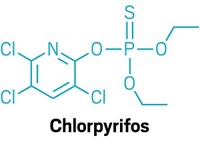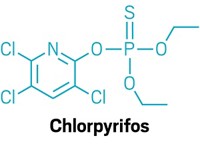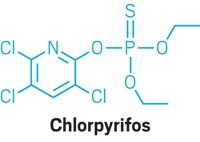Advertisement
Grab your lab coat. Let's get started
Welcome!
Welcome!
Create an account below to get 6 C&EN articles per month, receive newsletters and more - all free.
It seems this is your first time logging in online. Please enter the following information to continue.
As an ACS member you automatically get access to this site. All we need is few more details to create your reading experience.
Not you? Sign in with a different account.
Not you? Sign in with a different account.
ERROR 1
ERROR 1
ERROR 2
ERROR 2
ERROR 2
ERROR 2
ERROR 2
Password and Confirm password must match.
If you have an ACS member number, please enter it here so we can link this account to your membership. (optional)
ERROR 2
ACS values your privacy. By submitting your information, you are gaining access to C&EN and subscribing to our weekly newsletter. We use the information you provide to make your reading experience better, and we will never sell your data to third party members.
Pesticides
Corteva to stop producing chlorpyrifos
Regulatory restrictions drive down demand for organophosphate insecticide
by Britt E. Erickson
February 7, 2020

Corteva Agriscience, the largest manufacturer of the top-selling organophosphate insecticide chlorpyrifos, will phase out production of the agrochemical this year. The announcement, made on Feb. 6, comes as regulators in some US states and the European Union move to ban chlorpyrifos because of concerns for human health, particularly for farmworkers and children.
Demand for chlorpyrifos has dwindled since the late 1990s, when the US Environmental Protection Agency began reassessing the human health risks of all organophosphate insecticides. In 2016, the use of chlorpyrifos in the US fell below 2.3 million kg, down from a peak of about 6 million kg in 1994, according to data from the US Geological Survey.
In October last year, Corteva, formerly Dow AgroSciences, struck a deal with regulators in California in which the company agreed to phase out the sale of chlorpyrifos by Feb. 6 and end nearly all uses of the pesticide in that state by the end of 2020. California was the biggest market for chlorpyrifos in the US, representing 12–22% of US sales, according to usage estimates from the US Department of Agriculture.
Demand for the pesticide took another hit when countries in the European Union voted in December to end the sales of chlorpyrifos in the EU after Jan. 31, 2020.
“Due to this reduced demand, Corteva has made the strategic business decision to phase out our production of chlorpyrifos in 2020,” the company says in a statement.
Environmental groups are thrilled with Corteva’s decision, which will eliminate the majority of chlorpyrifos from the US market. But they are urging the EPA to ban the pesticide to prohibit the sale of generic versions.
“Corteva’s decision to terminate the production of chlorpyrifos shows that grassroots campaigns and state-level victories can have far-reaching impacts,” Andrew Kimbrell, executive director of the advocacy group Center for Food Safety, says in a statement. “A federal ban on chlorpyrifos is the only next logical step toward protecting children and farmworkers from this toxic pesticide.”
In 2016, the EPA proposed to ban chlorpyrifos on food crops, citing neurotoxicity concerns, but the Trump administration reversed that decision in 2017. The agency is currently evaluating the safety of chlorpyrifos, but it is unlikely to complete its review until 2022.





Join the conversation
Contact the reporter
Submit a Letter to the Editor for publication
Engage with us on Twitter